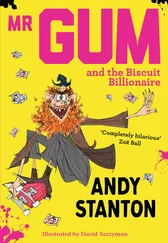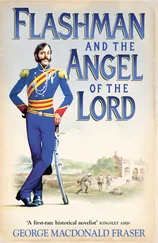Rabbi Stuart Shulevitz was the nearest thing my family had to an actual regular rabbi. He was Reform, of course, which meant that he had no beard, played the guitar, performed Bat Mitzvahs and interfaith marriages, invited local priests and imams to lead the Passover ritual, and put up perpetually with all the jokes told, even by his own congregation, about young, beardless, terminally tolerant Reform rabbis. Uncle Chaim, who allowed Aunt Rifke to drag him to shul twice a year, on the High Holidays, regarded him as being somewhere between a mild head cold and mouse droppings in the pantry. But Aunt Rifke always defended Rabbi Shulevitz, saying, "He's smarter than he looks, and anyway he can't help being blond. Also, he smells good."
Uncle Chaim and I had to concede the point. Rabbi Shulevitz's immediate predecessor, a huge, hairy, bespectacled man from Riga, had smelled mainly of rancid hair oil and cheap peach schnapps. And he couldn't sing "Red River Valley," either.
Aunt Rifke was generally a placid-appearing, hamishe sort of woman, but now her plump face was set in lines that would have told even an angel that she meant business. The blue angel froze in position in a different way than she usually held still as required by the pose. Her strange eyes seemed almost to change their shape, widening in the center and somehow lifting at the corners, as though to echo her wings. She stood at near-attention, silently regarding Aunt Rifke and the rabbi.
Uncle Chaim never stopped painting. Over his shoulder he said, "Rifke, what do you want? I'll be home when I'm home."
"So who's rushing you?" Aunt Rifke snapped back. "We didn't come about you. We came the rabbi should take a look at your model here." The word burst from her mouth trailing blue smoke.
"What look? I'm working, I'm going to lose the light in ten, fifteen minutes. Sorry, Rabbi, I got no time. Come back next week, you could say a barucha for the whole studio. Goodbye, Rifke."
But my eyes were on the Rabbi, and on the angel, as he slowly approached her, paying no heed to the quarreling voices of Uncle Chaim and Aunt Rifke. Blond or not, "Red River Valley" or not, he was still magic in my sight, the official representative of a power as real as my disbelief. On the other hand, the angel could fly. The Chassidic wonder- rebbes of my parents' Eastern Europe could fly up to heaven and share the Shabbos meal with God, when they chose. Reform rabbis couldn't fly.
As Rabbi Shulevitz neared her, the blue angel became larger and more stately, and there was now a certain menacing aspect to her divine radiance, which set me shrinking into a corner, half-concealed by a dusty drape. But the rabbi came on.
"Come no closer," the angel warned him. Her voice sounded deeper, and slightly distorted, like a phonograph record when the Victrola hasn't been wound tight enough. "It is not for mortals to lay hands on the Lord's servant and messenger."
"I'm not touching you," Rabbi Shulevitz answered mildly. "I just want to look in your eyes. An angel can't object to that, surely."
"The full blaze of an angel's eyes would leave you ashes, impudent man." Even I could hear the undertone of anxiety in her voice.
"That is foolishness." The rabbi's tone continued gentle, almost playful. "My friend Chaim paints your eyes full of compassion, of sorrow for the world and all its creatures, every one. Only turn those eyes to me for a minute, for a very little minute, where's the harm?"
Obediently he stayed where he was, taking off his hat to reveal the black yarmulke underneath. Behind him, Aunt Rifke made as though to take Uncle Chaim's arm, but he shrugged her away, never taking his own eyes from Rabbi Shulevitz and the blue angel. His face was very pale. The glass of Scotch in his left hand, plainly as forgotten as the brush in his right, was beginning to slosh over the rim with his trembling, and I was distracted with fascination, waiting for him to drop it. So I wasn't quite present, you might say, when the rabbi's eyes looked into the eyes of the blue angel.
But I heard the rabbi gasp, and I saw him stagger backwards a couple of steps, with his arm up in front of his eyes. And I saw the angel turning away, instantly; the whole encounter couldn't have lasted more than five seconds, if that much. And if Rabbi Shulevitz looked stunned and frightened — which he did — there is no word that I know to describe the expression on the angel's face. No words.
Rabbi Shulevitz spoke to Aunt Rifke in Hebrew, which I didn't know, and she answered him in swift, fierce Yiddish, which I did, but only insofar as it pertained to things my parents felt were best kept hidden from me, such as money problems, family gossip and sex. So I missed most of her words, but I caught anyway three of them. One was shofar, which is the ram's horn blown at sundown on the High Holidays, and about which I already knew two good dirty jokes. The second was minyan, the number of adult Jews needed to form a prayer circle on special occasions. Reform minyanim include women, which Aunt Rifke always told me I'd come to appreciate in a couple of years. She was right.
The third word was dybbuk.
I knew the word, and I didn't know it. If you'd asked me its meaning, I would have answered that it meant some kind of bogey, like the Invisible Man, or just maybe the Mummy. But I learned the real meaning fast, because Rabbi Shulevitz had taken off his glasses and was wiping his forehead, and whispering, " No. No. Ich vershtaye nicht . . . "
Uncle Chaim was complaining, "What the hell is this? See now, we've lost the light already, I told you." No one — me included — was paying any attention.
Aunt Rifke — who was never entirely sure that Rabbi Shulevitz really understood Yiddish — burst into English. "It's a dybbuk, what's not to understand? There's a dybbuk in that woman, you've got to get rid of it! You get a minyan together, right now, you get rid of it! Exorcise!"
Why on earth did she want the rabbi to start doing pushups or jumping-jacks in this moment? I was still puzzling over that when he said, "That woman, as you call her, is an angel. You cannot . . . Rifke, you do not exorcise an angel." He was trembling — I could see that — but his voice was steady and firm.
"You do when it's possessed!" Aunt Rifke looked utterly exasperated with everybody. "I don't know how it could happen, but Chaim's angel's got a dybbuk in her—" she whirled on her husband—"which is why she makes you just keep painting her and painting her, day and night. You finish — really finish, it's done, over — she might have to go back out where it's not so nice for a dybbuk, you know about that? Look at her!" and she pointed an orange-nailed finger straight in the blue angel's face. " She hears me, she knows what I'm talking about. You know what I'm talking, don't you, Miss Angel? Or I should say, Mister Dybbuk? You tell me, okay?"
I had never seen Aunt Rifke like this; she might have been possessed herself. Rabbi Shulevitz was trying to calm her, while Uncle Chaim fumed at the intruders disturbing his model. To my eyes, the angel looked more than disturbed — she looked as terrified as a cat I'd seen backed against a railing by a couple of dogs, strays, with no one to call them away from tearing her to pieces. I was anxious for her, but much more so for my aunt and uncle, truly expecting them to be struck by lightning, or turned to salt, or something on that order. I was scared for the rabbi as well, but I figured he could take care of himself. Maybe even with Aunt Rifke.
"A dybbuk cannot possibly possess an angel," the rabbi was saying. "Believe me, I majored in Ashkenazic folklore — wrote my thesis on Lilith, as a matter of fact — and there are no accounts, no legends, not so much as a single bubbemeise of such a thing. Dybbuks are wandering spirits, some of them good, some malicious, but all houseless in the universe. They cannot enter heaven, and Gehenna won't have them, so they take refuge within the first human being they can reach, like any parasite. But an angel? Inconceivable, take my word. Inconceivable."
Читать дальше











